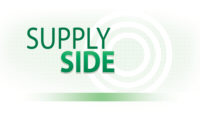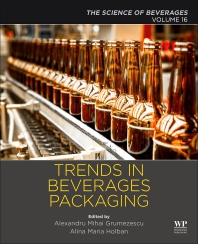Film Labeling: Process & Technique
Overnight Labels Provides Quality and Consistency in Labeling




At Overnight Labels, a Deer Park, New York-based manufacturer specializing in custom-printed shrink sleeves, neckbands, flexible films, and both pressure- and non-pressure-sensitive labels, among other products, the packaging marketplace pushes their labeling capabilities and offerings.
The 30-year-old company employs 50 at its 35,000-square-foot facility in Deer Park and serves the beverage, nutraceutical, personal care, food, and dairy markets, while also “tinkering in a bunch of other areas,” explains Don Earl, president and owner of Overnight Labels.
“The company has remained competitive by always embracing new technology, and training our employees to maintain and increase their skill level,” Earl says.
Flexible Packaging touched base with Earl via email to learn more about the Overnight Labels’ labeling capabilities and how the company is staying on top of the latest trends.
Q: How has Overnight Labels responded to changing technology in film labeling?
A: When our customer presents us with a new process or project they are looking to employ or present, we work with our vendors to come up with a film substrate that will work best for the project.
Q: Can you tell us more about the company’s flexographic printing capabilities?
A: We have 10 flexo presses ranging in size for 10-inch to 22-inch-wide that can print up to 10 colors. We also offer cold-foil stamping, rotary silk-screen printing and film laminating. We also have two digital presses to accommodate the short-run market. We will, and have, run anywhere from one label to millions of labels.
Q: What new techniques are you seeing in film labeling?
A: Mostly cold-foil stamping, embossing, and tactile and special effect varnishes.
Q: What are some of the challenges of working with film labels, and how is Overnight Labels handling those challenges?
A: The biggest problem with printing on film is making sure the ink adheres well and that it does not rub off. If you’re printing a label that is going on a product that is very oily or that may go in the shower, you’re going to approach that much differently than a label that goes on a vitamin bottle. When printing shrink sleeves, a sleeve going on a vitamin bottle is relatively easy compared to printing a sleeve going on a beverage that is going to be high-pressure pasteurized. FP
Q: How has the company responded to changing brand and consumer needs in labeling?
A: We do what the customer requests. We also try to get out in front of things by trying new substrates and effects before the customer knows they’re available.
Q: Sustainability and recyclability are big buzz words in the flexible packaging industry right now. How has Overnight Labels adapted to this need for social responsibility in terms of environmentally friendly packaging?
A: We are an SGP (Sustainable Green Printing Partnership) certified facility. We are audited every year to ensure that we are running our facility in a safe and as green a fashion as possible. Many people concentrate on buying “green” materials, but it is also important to make sure to limit pollutants in the process as well. The Sustainable Green Printing Partnership is a nonprofit organization that certifies printing facilities’ sustainability best practices, including and beyond regulatory compliance. SGP’s certification program encourages printers to reduce their environmental impact and increase social awareness of their best practices in order to provide print buyers (with) a more sustainable supply chain.
Overnight Labels Inc.
(800) 472-5753; www.overnightlabels.com
Looking for a reprint of this article?
From high-res PDFs to custom plaques, order your copy today!









